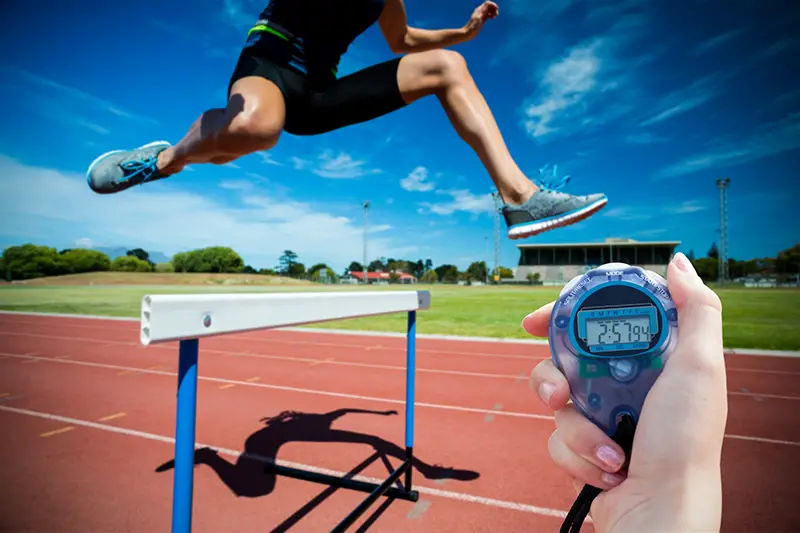Click here to get this post in PDF
Intense exercise and other physical activities put immense strain on the body. For athletes, finding ways to push their body’s limits means creating the correct balance between performance and recovery. The best athletes, whether professionals or hobbyists, learn to manage their bodies to achieve optimal results.
During exercise, the body consumes macronutrients quickly. As a result, protein, healthy fats, sugars, and carbohydrates deplete more the longer you exercise. When finished, the body needs rest and to replenish its stores to prepare for what’s next.
Elite athletes learn quickly that recovery is vital to long-term performance. Thankfully, more information is available than ever to help us recover faster and perform better. Here are some helpful tips on how to support athletic performance and recovery.
Make Hydration a Priority
Drinking more water and hydrating your body is key to improved athletic performance. Too often, people fail to drink enough water throughout the day. When sweating during exercise, your body loses water much faster than many realize. As a result, they usually feel tired for longer after playing sports or lifting weights. It takes them longer to bounce back after a hard session.
Instead, people should drink more water before, during, and after exercise. In addition, people should also consider drinking drinks with higher salt levels to retain water better and restore the body’s natural mineral levels.
Try working your way up to drinking a gallon of water daily. Watch how your body feels. People who consciously drink more water often report better energy levels, higher metabolism, and other health benefits.
Focusing on Rest
Rest is a vital factor in performance on the field. No one can expect to perform their best when they starve their body of sleep. Unfortunately, many aspects of our culture celebrate sleep sacrifice. Working people brag about how little they sleep, thinking it gives them an edge.
However, lack of sleep has detrimental effects on physical and mental health. You can’t think as clearly or run as far without getting enough rest at night. When you sleep, your body is at work restoring cell health and building up energy stores.
Do your best to start getting more sleep, and see how it improves your athletic performance.
Lose the Extra Weight
Dropping excess weight is another significant aspect of athletic performance and recovery. Overweight people tend to place more stress on their bones, joints, and body systems, so your body must work harder to get back to full battery.
By losing the extra pounds, you ease the stress on your body and reduce your recovery time. People in healthy weight ranges typically achieve better athletic results as well. Eating a high-protein diet with vegetables, avoiding sugar, and other factors can help contribute to weight loss.
Controlling Inflammation
Inflammation is another health condition that gets in the way of performance and recovery. Inflamed joints, bones, and muscles react slower and take longer to heal. Oxidative stress gets in the way of a healthy immune system, so you’re more likely to get sick or injured if inflammation isn’t under control.
Oxidative stress is one of the leading causes of inflammation in the body. While it’s a normal immune response, runaway inflammation is bad for you. To control inflammation, you must reduce oxidative stress and treat injuries quickly with rest, ice, compression, and elevation (the RICE method).
The Benefits of Antioxidants
Antioxidants find and eradicate free radicals in the body. They occur naturally, but people can add exogenous antioxidants by eating foods rich in them, like berries, fish, poultry, leafy greens, etc. Some supplements packed with antioxidants make it easier for people to get faster.
Carbon 60 (C60) is a unique supplement that delivers powerful antioxidant effects without having to eat a significant amount of antioxidant-rich foods. Its special blend of 60 carbon atoms provides a strong antioxidant boost, according to Shopc60.
Getting more antioxidants from healthy sources is a significant advantage for athletes focused on improved performance and fast recovery. With better health, athletes usually experience higher performance levels, endurance, and lower inflammation. The chances of injury related to oxidative stress are also likely lower.
Managing Stress
Preventing excess stress is also a vital aspect of athletic performance and recovery. People who experience intense stress from work, family, or other sources have difficulty performing their best. They’re also often distracted when it comes time for recovery.
Stress raises the risk of poor eating, smoking, excess drinking, lack of sleep, and other bad habits. Instead of looking for unhealthy stress outlets, athletes and people focused on performance should address the underlying causes of stress. By eliminating the causes, you avoid the pitfalls like overeating sugar or high inflammation levels.
Treating your body with care and giving it the rest and minerals it needs will boost your athletic performance and lead to improved recovery times. Pay attention to how your daily habits affect your abilities, and make healthy changes for better results.
You may also like: What Are The Benefits of Doing Exercise Regularly?
Images source: Depositphotos.com

